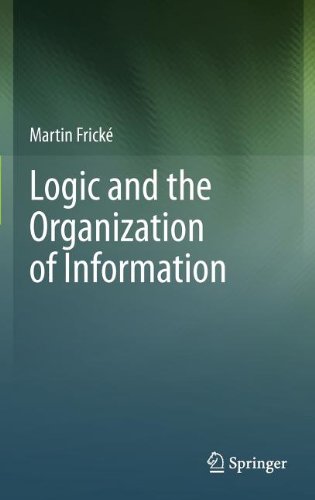

Most ebook files are in PDF format, so you can easily read them using various software such as Foxit Reader or directly on the Google Chrome browser.
Some ebook files are released by publishers in other formats such as .awz, .mobi, .epub, .fb2, etc. You may need to install specific software to read these formats on mobile/PC, such as Calibre.
Please read the tutorial at this link: https://ebookbell.com/faq
We offer FREE conversion to the popular formats you request; however, this may take some time. Therefore, right after payment, please email us, and we will try to provide the service as quickly as possible.
For some exceptional file formats or broken links (if any), please refrain from opening any disputes. Instead, email us first, and we will try to assist within a maximum of 6 hours.
EbookBell Team

4.4
72 reviewsLogic and the Organization of Information closely examines the historical and contemporary methodologies used to catalogue information objects—books, ebooks, journals, articles, web pages, images, emails, podcasts and more—in the digital era.
This book provides an in-depth technical background for digital librarianship, and covers a broad range of theoretical and practical topics including: classification theory, topic annotation, automatic clustering, generalized synonymy and concept indexing, distributed libraries, semantic web ontologies and Simple Knowledge Organization System (SKOS). It also analyzes the challenges facing today’s information architects, and outlines a series of techniques for overcoming them.
Logic and the Organization of Information is intended for practitioners and professionals working at a design level as a reference book for digital librarianship. Advanced-level students, researchers and academics studying information science, library science, digital libraries and computer science will also find this book invaluable.